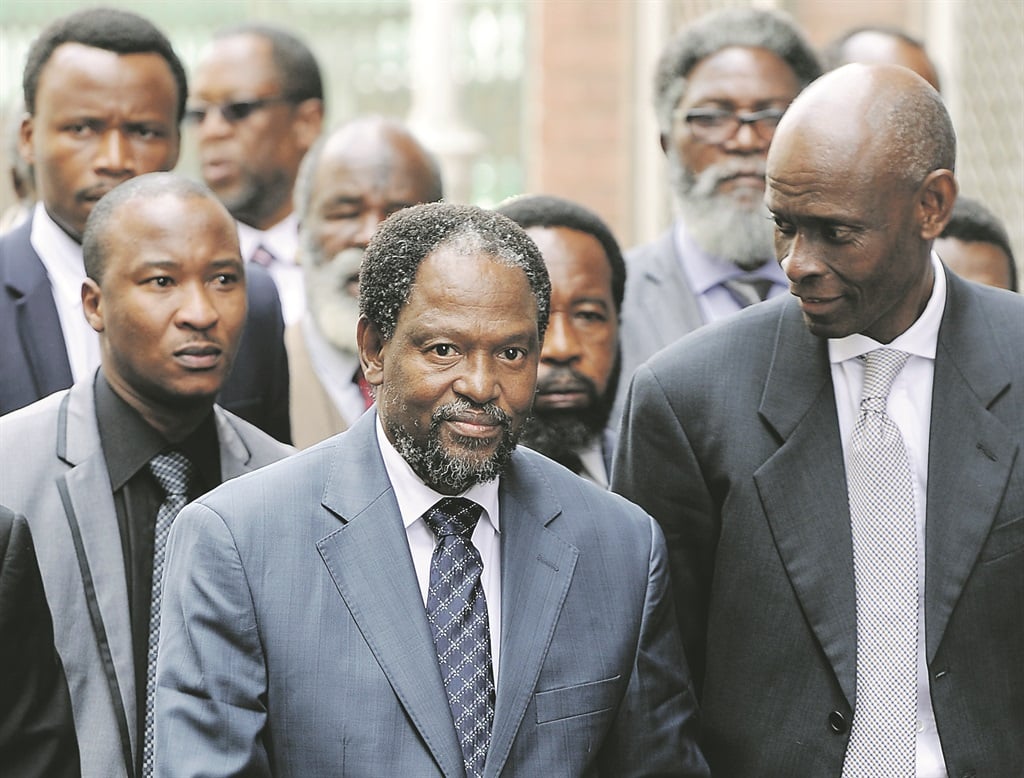
- A dispute surrounding the leadership succession in the Nazareth Baptist Church arose after the death of Vimbeni Shembe in 2011.
- His son, Mduduzi, claimed his father had orally nominated him as his successor.
- This was challenged by the church leader’s cousin, Vela Shembe, who charged he had been nominated in terms of a written deed of nomination.
An abstract and academic exercise - this was what the Constitutional Court on Tuesday labelled the appeal relating to the leadership of the Nazareth Baptist Church in its dismissal of the application of its late leader's son.
The dispute surrounding the leadership succession in the church arose after the death of Vimbeni Shembe in 2011. At the time, he was the leader and titular head of the congregation as well as the sole trustee of the Nazareth Ecclesiastical Endowment Trust.
His son, Mduduzi who is the first applicant in the case, claimed his father had orally nominated him as his successor.
This, however, was challenged by Vela Shembe, the church leader's cousin, who charged he had been nominated in terms of a written deed of nomination.
According to the ConCourt, the leadership succession in the church was purported to be regulated by a trust deed and a constitution adopted by the church in 1999. These, however, regulate leadership differently.
The trust deed provides a mechanism to elect a successor should the titular head not nominate a successor or nominate more than one successor, with a proviso that if more than one was nominated, the choice would be made by an executive and advisory committee and limited to those nominated.
The constitution, however, provided for a single nominee only.
The KwaZulu-Natal High Court was approached for an order that effect be given to a written deed of nomination. It was disputed who Vimbeni Shembe had nominated as his successor and whether the succession in the church was governed by the trust deed or Constitution.
The High Court found Vela Shembe had been nominated by the leader in terms of the deed of nomination and concluded the trust deed was not adopted, used or applied by the Ebuhleni Church and that the constitution applied, instead.
The full court, on appeal, overturned this finding, holding the trust deed applied to succession, but upheld that only Vela Shembe was nominated by the leader.
He died shortly after the judgment was handed down in 2017. Ntombifikile Shembe "stepped into his shoes" as executrix of his estate.
Mduduzi Shembe appealed to the Supreme Court of Appeal (SCA), which found unanimously there was no material misdirection by the trial court and its "findings were unassailable".
It found the trust deed, in regulating succession to the titular head position, had been varied by the constitution and this was "sanctioned by the interpretive principle that where a later document is adopted, the parts of an earlier document that are inconsistent with it are regarded as having been varied".
ALSO READ | Shembe church leader dies of 'natural' causes
Mduduzi Shembe then applied for leave to appeal in the ConCourt, arguing the SCA had allowed a variation of the trust deed in breach of the Trust Property Control Act.
It questioned whether the SCA had allowed an "extraneous document to amend the provisions of a trust deed in contravention of the Trust Property Control Act".
The ConCourt refused the application.
According to the judgment, the applicants wanted to appeal against remarks "made in passing" and were made "by the way".
"It followed that the applicants' appeal was an abstract and academic exercise at best, which the Constitutional Court ought not to determine," it said.
The nomination issue was not challenged and was upheld by a full Bench of the SCA.